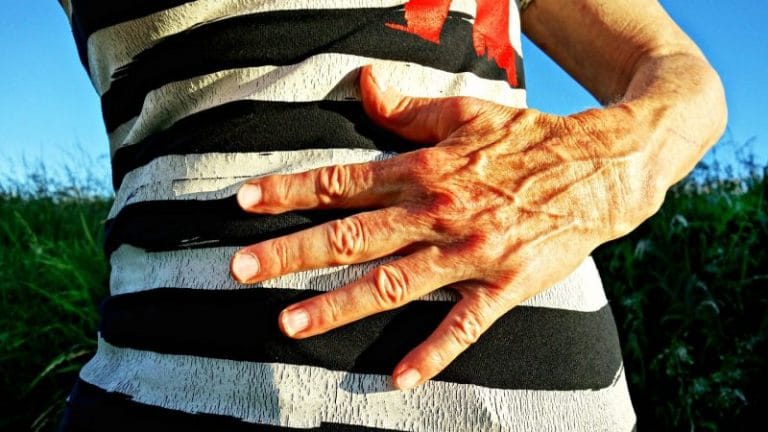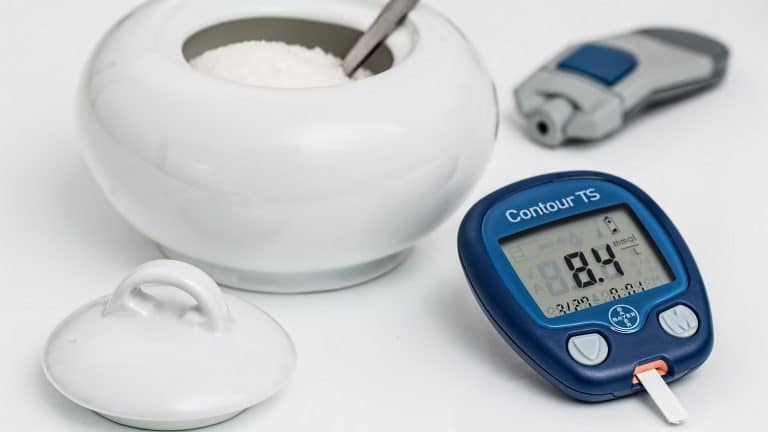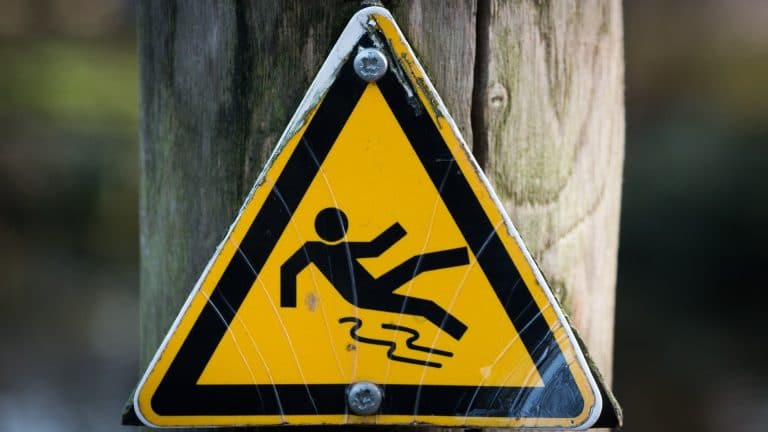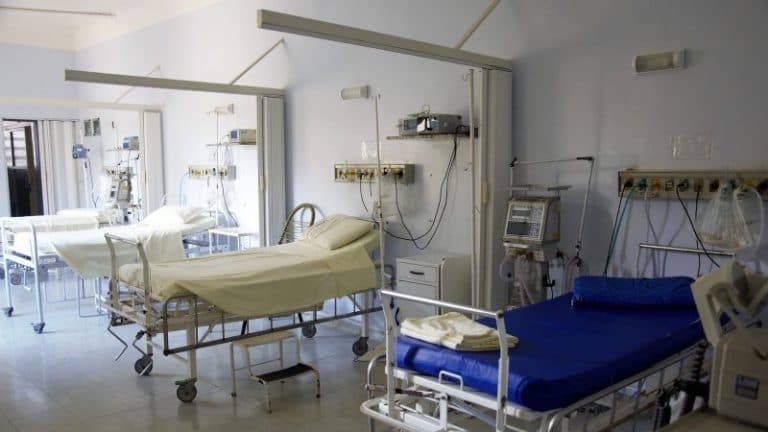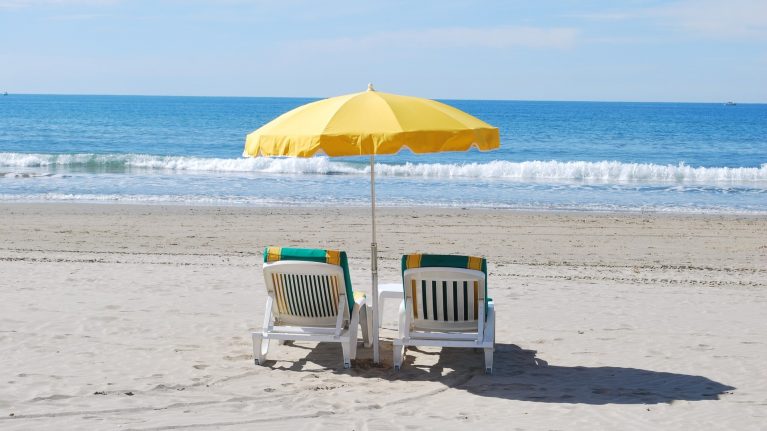Dehydration in the Elderly: All Questions Answered
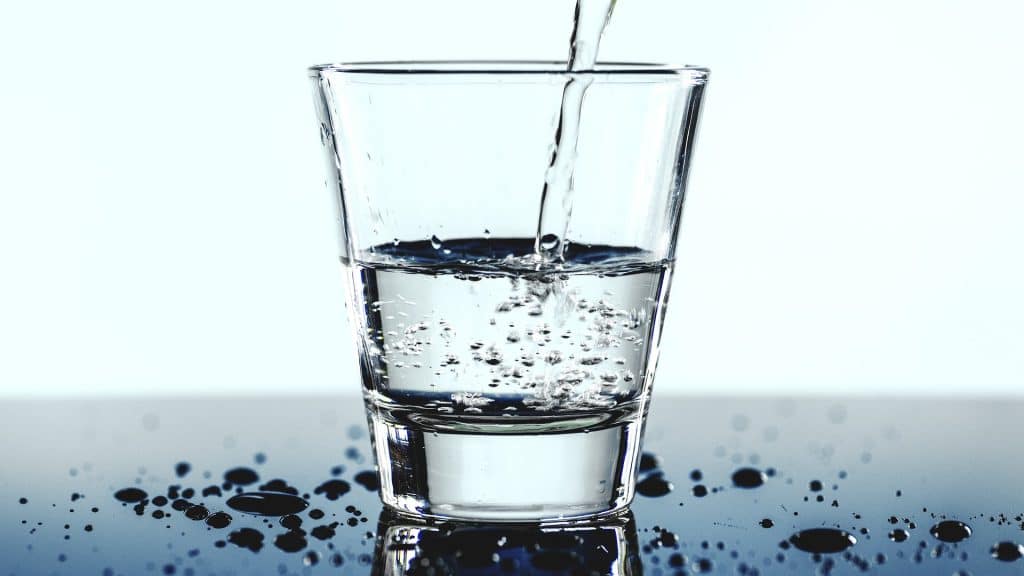
We all know that drinking lots of water is good for us. And most of us try to stay hydrated by following recommendations for how much liquids we should drink daily. Dehydration in the elderly is a serious issue. It’s pretty common, and it can have dangerous consequences. Yet, it’s often overlooked. In this post, we will explain every aspect of dehydration in general, with a particular focus on dehydration in seniors, which we’ll cover in detail. Keep reading, and find out everything there is to know on the matter. Let’s begin!
What Is Dehydration?
Dehydration is a term used to describe the lack of water in the body. Quite simply, dehydration occurs when you lose more water than you consume. When the body lacks water, it can’t function properly. While everyone can become dehydrated, children and the elderly are especially susceptible, which is most dangerous for them.
Moreover, some dehydration symptoms in elderly people can be masked (for instance, skin tenting), leading to a delayed diagnosis. Often, dehydration is diagnosed in the hospital when it has already caused a severe problem. That’s why it is essential to know its causes and symptoms so that we can act swiftly to prevent and treat it.
What Causes Dehydration in the Elderly?
The following reasons can cause dehydration in any age group:
- Not drinking enough water: The simplest and most common reason for dehydration is the elderly not drinking enough water. Whether that may be a matter of habit or the lack of access to clean drinking water, you will become dehydrated if you neglect hydration. Note that dehydration can even result from neglect in nursing homes.
- Fever: Another major cause of dehydration through the skin is fever. The higher the fever, the more liquid you lose by sweating. Fever is especially dangerous when combined with diarrhea and/or vomiting.
- Vomiting and diarrhea: Another one of the causes of dehydration in the elderly can be an acute illness that causes diarrhea and/or vomiting. This can cause a massive loss of fluids and electrolytes (minerals), which often requires medical attention. Drinking water may not be enough to compensate for the loss.
- Excessive sweating: Similarly to the previous point, excessive sweating due to vigorous activity, especially in hot and humid weather, leads to the loss of water and electrolytes. Why do the elderly get dehydrated quickly? Well, their reserve is smaller, and they use it up faster. Therefore, they should always stay hydrated in those situations to prevent dehydration and heat exhaustion.
- Increased urination: Finally, you can lose water through increased urination. This can be due to undiagnosed or untreated diabetes. Dehydration in older adults is also often caused by medications such as diuretics. They are usually prescribed to people with high blood pressure.
Risk Factors for Dehydration in Seniors
As people get older, their body’s fluid reserve gets smaller, and their ability to keep water is reduced. Moreover, their thirst sense gets less acute. There’s an increase in these problems due to chronic diseases, like diabetes and dementia, or the use of specific medications. Moreover, another reason behind dehydration in elderly adults is that older people may have mobility problems, limiting them to obtain water by themselves. Not only are older people at risk of dehydration, but several others, like people with chronic illnesses, infants and children, and people who work or exercise outside.
Why Is Dehydration More Common in the Elderly?
Numerous changes happen in our bodies as we age. That includes the very composition of our body and how it stores water. On top of that, chronic conditions and illnesses accumulate over time, as well as the medications we take to treat them, which can also contribute to dehydration. So the answer to the question “What causes dehydration in older adults?” is most likely to be found among the following reasons:
- Body water composition changes: You probably know that two-thirds of our bodies are made up out of water. But this percentage varies substantially, and it’s influenced by sex, age, and body fat percentage. Water constitutes over 70% of the bodyweight of a newborn baby, whereas less than 50% of the weight of some obese people comes from water. Older adults also have a low body water percentage, which is a significant risk factor for dehydration.
- Reduced sense of thirst: The second mechanism that plays a vital role in the pathophysiology of dehydration in elderly people is the reduced sense of thirst. Older adults have a decreased sense of thirst, which makes them less sensitive to dehydration. In other words, they can already be dehydrated before their alarm to drink water is triggered.
- Kidney function decline: Also related to aging, many seniors’ kidneys become less efficient in conserving water while filtrating waste. As a result, they lose more water than necessary.
- Mobility issues: A senior may have trouble moving for several reasons, including arthritis and other painful conditions. For this reason, they may become more and more reluctant to get up and get water. This is a common cause of chronic dehydration in older adults. Furthermore, if a senior is bedridden, they can be completely reliant on caregivers to bring them something to drink.
- Incontinence: If they cannot control urination, the elderly’s water intake is probably lower, too, to avoid accidents. This can also easily lead to chronic dehydration.
- Medications: Last but not least, many of the pills seniors take can cause dehydration. This can happen as a direct result of their main mechanism of action, either as a side effect or due to interactions between different drugs. Diuretics (“water pills”), prescribed for high blood pressure, are the most common medications that cause dehydration when overused.
- Cognitive issues: Dehydration in the elderly and dementia patients go hand in hand. Alzheimer’s and other types of dementia and cognitive impairments can make an older person forget to drink water. Coupled with a weaker sense of thirst and other issues, dehydration is very likely to occur.
What Are the Symptoms of Dehydration in the Elderly?
The signs and symptoms of dehydration in the older population vary depending on the severity of the condition. Not all early signs of dehydration in elderly people have to be present to arouse suspicion that a senior is on the verge of dehydration or already dehydrated. Let’s go into more detail.
It’s always a good idea to take a sip of water if you notice any of the following early signs and symptoms of dehydration in elderly people:
- dry mouth
- thirst
- dry skin
- less frequent urination
- dark urine
- constipation
- muscle cramps in limbs
- fatigue
If dehydration is not addressed in its early stages, chronic dehydration symptoms can quickly develop:
- lack of sweating and tears
- sunken eyes
- dizziness
- confusion and irritability
- low blood pressure
- weak and rapid pulse
- rapid breathing
- delirium and unconsciousness
Can dehydration cause confusion in the elderly? It certainly can. If a senior is suddenly showing signs of confusion or any other severe symptoms of dehydration, they must see a doctor right away. For a senior, it always helps to have a medical alert system around, just in case.
Dehydration in the Elderly and COVID-19
One of the COVID-19 symptoms people aren’t particularly thrilled to talk about is diarrhea. Approximately 20% of COVID-19 patients experience this symptom. If untreated, diarrhea may become dangerous. So, how can diarrhea lead to dehydration in elderly adults? When people experience diarrhea, their bodies can’t maintain the crucial water and sodium balance, causing dehydration. Coupled with the virus, the side effects of dehydration in elderly people affect their:
- lung function, resulting in pneumonia
- kidney and liver function
- heart rate
- mental state
- breathing
Believe it or not, it can also cause a full-body infection—sepsis, resulting in death in some cases. Therefore, the best way to treat dehydration caused by diarrhea is using proper oral hydration to regain the fluid loss, as these products usually contain sodium, potassium, citrate, starch, glucose, and bicarbonate acids.
Elderly and Dehydration: Complications
Why are we so concerned with dehydration? Because, if untreated, it can cause very severe complications, including:
- Urinary tract problems: The effects of dehydration in elderly people may lead to urinary tract problems, as frequent and long-standing dehydration is very likely to cause urinary tract infections, kidney stones, or even kidney failure—a life-threatening condition.
- Heat injury: Vigorous exercise and heavy perspiration without proper hydration can lead to overheating and various degrees of heat injury. They can range from mild cramps to exhaustion or heat stroke, the most severe complication.
- Seizures: Can dementia be caused by dehydration? Not really, but the confusion it causes can look like dementia. It can, however, cause full-blown seizures. How? Losing electrolytes, such as potassium and sodium, can cause a disruption in the electrical signals between cells. This, in turn, causes involuntary muscle contractions or a loss of consciousness.
- Hypovolemic shock: Shock is a medical emergency that occurs when the body is not getting enough blood flow, meaning the cells and organs do not get enough oxygen and nutrients to sustain their function. It can occur due to the low blood volume caused by dehydration.
How Is Elderly Dehydration Diagnosed?
If you notice the above signs and symptoms and are concerned an older person might be dehydrated, there are a few ways to check it at home. If you have a blood pressure monitor, check to see if they have low blood pressure and a rapid pulse. Next, check for skin tenting by pinching their skin and seeing if and how quickly it returns to normal. This is an unreliable sign, and you shouldn’t delay a visit to the doctor’s office if the older person is unwell.
Your doctor will make an initial diagnosis based on the signs and symptoms of dehydration in the elderly. However, the definite diagnosis must be based on blood tests and urinalysis, which will reveal the whole picture and the severity of dehydration. A blood test for dehydration in the elderly and a urine analysis can show us how concentrated the blood is, directly telling us if there is a lack of water in the body. We can also check if there’s an imbalance of electrolytes and how the kidneys are functioning. This will also determine the course of action and the treatment protocol.
Dehydration Treatment
The treatment of dehydration depends on:
- the severity of dehydration
- the type of electrolyte imbalance, and
- the cause of dehydration
If the condition is mild, the recovery from dehydration in elderly people can occur after increasing oral fluid intake. Water will do, but sports drinks that contain electrolytes can be a better solution. Moderate dehydration needs to be treated in a hospital setting, such as the ER because the loss of water and electrolytes have to be compensated through an IV. Severe dehydration in elderly people may even require dialysis in addition to the treatments above. If something specific, such as diarrhea or vomiting, is causing dehydration, the doctor should also treat the underlying causes.
Preventing Dehydration in the Elderly
As you know, seniors have to take extra steps to ensure proper hydration. However, knowing the risk factors enables you to handle them one by one. Preventing dehydration in elderly people is easy with the right plan. Taking the following steps should prevent dehydration:
- Drink enough fluids: How much water should an elderly person drink a day? Experts recommend that older adults consume between 11.5 and 15.5 cups of fluids per day. Notice that we said fluids, so it doesn’t have to be just water. Any liquid will do, but alcohol and coffee don’t count. In fact, they provide the opposite effect because they act as diuretics. Make sure to drink extra fluids when it’s hot and when you are sick. Never wait to become thirsty—dehydration has already started at that point.
- Always have a variety of fluids around: What liquids are best for preventing dehydration in seniors? Water is best for preventing dehydration, but drinking only water can seem like a tiresome task. That’s why having a variety of options and having them close by at all times will definitely make it easier to increase your overall fluid intake. Choose natural juices and drinks containing low sugar or sports drinks, such as Gatorade, containing electrolytes.
- Eat foods with high water content: Water in foods counts too! Conveniently, foods that are high in water content are also very good for you and your diet. Eating fruits and vegetables, soups, yogurts, and so on will not only keep you hydrated but help you lose weight. Since we’re talking about dehydration prevention, elderly people are also prone to constipation. You can solve both problems at the same time by increasing fluid intake.
- Measure fluid intake: If you’re concerned whether you or the person you are taking care of is drinking enough liquids, it helps measure the fluid intake. You can even keep a journal—this can be especially useful for seniors who can’t speak or move.
- Tackle underlying conditions and risk factors: Talk to the senior about anything that may prevent them from drinking enough liquids, such as mobility issues and incontinence. Educate them about the symptoms of dehydration in the elderly and the dangers of dehydration, and find solutions to these problems.
Conclusion
We believe that this condition has been overlooked for far too long. Not only are dehydration and the elderly closely related, but these people are also more at risk of suffering severe consequences. Some of the most severe are urinary tract complications, seizures, heat injuries, and hypovolemic shock. This is partly because some symptoms can be masked, so dehydration in the elderly can be discovered later and require a more complicated treatment. Hopefully, our detailed guide will help you prevent dehydration from ever occurring.
FAQs
What is an early sign of dehydration in the elderly?
Some of the early signs of dehydration include:
- having dark colored and strong-smelling urine
- feeling thirsty and lightheaded
- tiredness
- a dry mouth
- passing urine less often than usual
It’s crucial not to ignore these early signs, as they may become more serious later on.
How does dehydration affect the elderly?
Older people have greater chances of dehydration than younger people. In addition, not drinking enough fluids may significantly impact the body, especially in the elderly. Moreover, severe dehydration in the elderly may cause confusion. Also, it may lead to weakness, bedsores in bedridden patients, pneumonia, urinary tract infections, and other severe conditions.
How to prevent dehydration in the elderly?
If you want to prevent dehydration, you should:
- include food with higher water content in your diet
- try to drink more water, milk, fruit juices with low sugar, and flavored sparkling water
- drink more fluids if you experience fever, vomiting, or diarrhea
- take smaller sips if drinking fluids at once is hard
- take water with you if you plan on exercising or spending more time in hot or humid conditions
- add a slice or squeeze lemon or lime to add flavor if you don’t enjoy drinking plain water
How long does it take for the elderly to recover from dehydration?
That depends on the severity of dehydration. For example, if it’s mild, the symptoms usually improve right after drinking enough fluids. However, if the dehydration is severe and IV is administered, the elderly should recover after the fluid replacement. Treating the cause is also crucial and may include antibiotics, medication changes, or lifestyle changes.
Why do the elderly not want to drink?
The natural aging process makes the body’s ability to signal not having enough fluid weaker. Therefore, older people don’t feel thirsty and may not notice they need to drink water, further leading to dehydration in the elderly.

